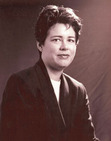Research: Sinking or Soaking
When I was a college student, I was very fortunate to have two superb writing teachers, Jack Bickham and Robert L. Duncan. One of the wisest pieces of advice that Bob gave to me was regarding research.
At the time, I was working on a historical novel set in 1797 England. I was juggling plot, characters, and setting in a scramble to turn in my weekly assignments on time. (This was back in the Dark Ages of writing, before the invention of the Internet or personal computers, when writers shivered in garrets with snow falling on their quill pens.)
Bob told me, “Write the story first and then research it.”
It took a huge burden off my shoulders. I can still recall my sense of relief. Without the obligation to triple-check every detail as I was creating the rough draft, I could focus my attention on my characters and plot. The story went more smoothly, and once the draft was completed, I combed through it and looked up the information I needed.
Granted, at the time a lot of information simply wasn’t available to me because I lacked access to certain resource material. I was in greater danger of losing writing time to the sheer frustration of having to search and search and search. Today, writers have a wealth of material available right at their fingertips. It is indeed a different world.
However, thanks to the ease and convenience of using the Internet, writers have to be more careful than ever. While I find a small amount of early information gathering essential for idea development–picking up facts here and there while mulling over protagonist design and building the setting–it can be tempting to start intensive research during the planning stage.
Gathering a little, just to gain the atmosphere or the feel of what you have in mind, is letting the information soak.
The danger lies with overdoing preliminary research. Before you know it, you’ve been sucked into the whirlpool of too much information. You will sink.
Instead of weighing plot options, you’re weighing how many of these cool events or facts you can wedge into the storyline. Will this result in a better plot? No!
Another danger lies in researching as you go. This doesn’t mean that you shouldn’t look up something briefly or double-check the direction of the tide at 6 p.m. in Seattle if it has a direct bearing on your murder plot, but if you aren’t careful your rough draft will start to skew off course because you want to fit in a scene written around something you’ve learned.
Instead, stick with your outline. Let the fact-checking wait for draft #2. If you’ve made an error and have to rewrite a page or two to correct the goof, that’s easy to do.
But if you twist your story to fit the research, you may find yourself deleting 30,000 words from a 90,000-word manuscript–simply because you’ve written a set piece that doesn’t have anything to do with the actual story. That kind of cut is not only painful but a huge time waster as well.
As Bob explained to me, “Until you’ve written the rough draft, you won’t know exactly what you need to look up.”
Sage advice, indeed.

C. Aubrey Hall's Blog
- C. Aubrey Hall's profile
- 7 followers



